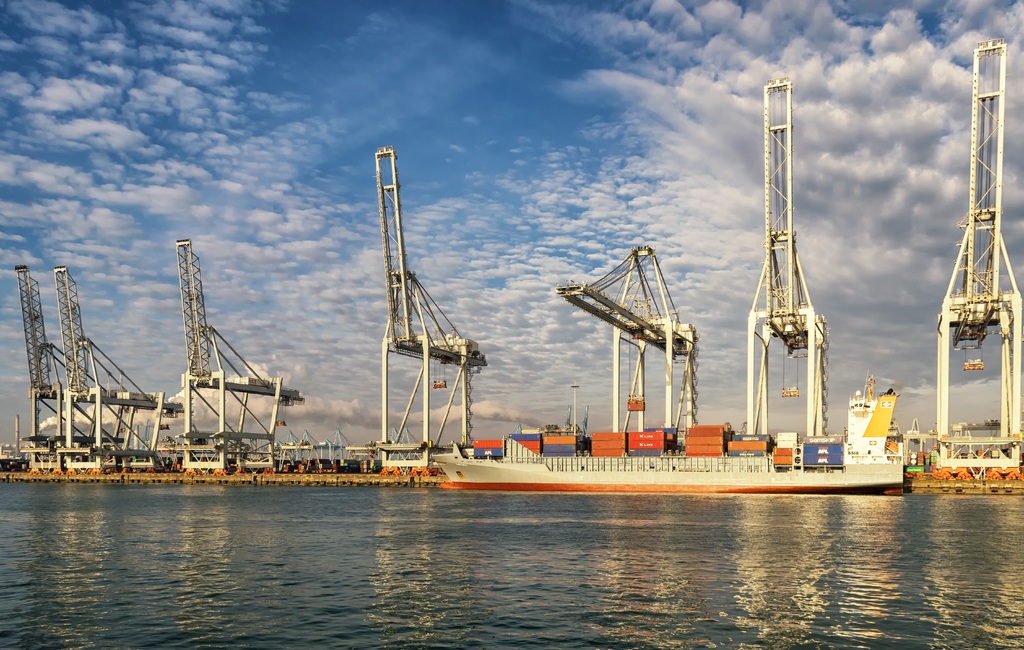In the first quarter of 2022, 1.5 per cent less freight passed through the Port of Rotterdam than in the same period last year: 113.6 million tonnes compared to 115.2 million tonnes in the first quarter of 2021. Especially the throughput of mineral oil products and iron ore fell.
The throughput of LNG and other liquid and dry bulk (raw materials in particular) increased. The container volume was slightly below the 2021 level.
‘Although we started the year exceptionally well, the world was hit by the war in Ukraine in late February. Besides the fact that this conflict is a terrible humanitarian disaster, it led to serious uncertainty in world trade and changes in logistical parameters,’ explains Allard Castelein, CEO Port of Rotterdam Authority. ‘Although no one can predict how this will unfold, we expect that the developments in Ukraine and the seriously deteriorated relationship between Russia and many other countries will impact throughput volumes for the rest of the year as well.’
Russian cargo
In the port of Rotterdam last year, 62 million tonnes of almost 470 million tonnes of throughput was Russia-oriented (13 per cent). Many energy carriers from Russia are imported via the port of Rotterdam. In 2021, roughly 30 per cent of crude oil, 25 per cent of LNG, and 20 per cent of oil products and coal came from Russia.
Russia exports steel, copper, aluminium and nickel through Rotterdam. In 2021, 8 per cent of container handling was Russia-oriented. As the war in Ukraine only began in late February, the impact on throughput volumes in the first quarter was still limited. Meanwhile, the impact of the sanctions and of the decisions of individual companies not to do any business with Russia any longer, has become noticeable in almost all sectors.
Also read: How the Port of Rotterdam is impacted by the Russia-Ukraine conflict
Small negative for liquid bulk
In total, liquid bulk throughput decreased by one per cent to 51.5 million tonnes. The volume of crude oil remained virtually unchanged (-0.2 per cent to 25.5 million tonnes). The throughput of mineral oil products, especially fuel oil, dropped (-20.5 per cent to 13.5 million tonnes), mainly due to lower production in Russia, as a result of which less fuel oil entered Rotterdam from Russia.
As from March, oil companies have imported less oil from Russia. In the first quarter, LNG throughput was considerably higher (+77.7 per cent to 2.7 million tonnes). The throughput of chemical products, vegetable oils and renewable products also strongly rose, causing a strong increase in the volume of other liquid bulk (+22.2 per cent to 9.9 million tonnes).
Iron ore and scrap drop, coal slightly up
In the dry bulk segment, iron ore and scrap fell (-19.5 per cent to 5.6 million tonnes). High energy costs and diminishing demand for steel caused German steel production to slump. Reduced demand was especially due to disruptions in logistics chains, causing production levels of steel processing companies to drop.
Coal throughput slightly rose (+3.5 per cent to 3.9 million tonnes), as demand for energy coal (for power plants) increased more sharply than demand for cokes (for blast furnaces). For electricity production coal is cheaper than gas at this moment. For other dry bulk there is a massive increase in comparison with last year (33.5 per cent to 3.9 million tonnes). Despite the high prices, demand for raw materials has soared.
Also read: Port of Rotterdam throughput reaches pre-corona levels in 2021
Lower throughput of containers
Primarily the falling transshipment volumes (-21.5 per cent to 6.0 million tonnes) led to lower throughput in the container segment (-5.4 per cent to 35.6 million tonnes). In terms of TEU (the standard unit for containers), the throughput dropped less dramatically (-1.4 per cent to 3.6 million TEU), since the average container weight was lower, and more empty containers were transported.
Transshipment volumes have been decreasing gradually since July 2021, in consequence of the enormous amount of activity at the deep-sea terminals due to the high number of disruptions in the logistics chain. Additionally, container shipping had to cope with several storms in January and February, which upset sailing schedules even further.
In March, the impact of the war in Ukraine was reflected in falling volumes to Russia. Most shipping companies introduced a booking stop for Russian container cargo, and most deep-sea terminals do not accept any export cargo from Russia any longer. This will affect transhipment volumes to Russia even further. In the first quarter, the consequences of the Covid lockdowns in Shanghai were not yet noticeable in Rotterdam.
Also read: Port of Rotterdam to pilot mobile shore-based power on hydrogen
RoRo and other breakbulk up
The total throughput in the breakbulk segment (roll-on/roll-off and other breakbulk) increased by 19 per cent to 8.4 million tonnes. The RoRo throughput (+20.4 per cent to 6.7 million tonnes) went up in comparison with the first quarter of last year, as the Brexit transition period had just ended and due to high demand from the United Kingdom.
In the segment of other breakbulk, an increase (+13.7 per cent to 1.7 million tonnes) resulted from a higher non-ferrous throughput and a shift from container cargo to breakbulk, brought on by the rates in container shipping. Much Russian cargo currently remains at the breakbulk terminals.








